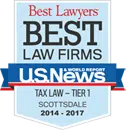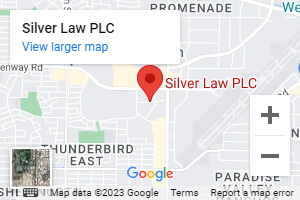How Silver Law Can Help Represent You in Phoenix Criminal and Civil Tax Litigation How…
IRS Releases New ACA Reporting Forms
The year is closing in on us quickly, and before you know it, it will be time to start getting all your paperwork in order to file your taxes. If you run a business of any size in Arizona, that means you will also have to account for your employees’ health insurance coverage. You will need to complete a number of forms and provide documentation.

Earlier this summer, the IRS issued some proposed versions of these forms. The agency has just issued the final version of the forms, giving businesses plenty of time to get used to them and to understand what information is needed to complete them. The new forms are:
- Form 1094-B – Transmittal of Health Coverage Information Returns
- Form 1094-C – Transmittal of Employer-Provided Health Insurance Offer and Coverage Information Returns
- Form 1095-B – Health Coverage
- Form 1095-C – Employer Provided Health Insurance Offer and Coverage
If you are unclear about the information these forms are asking for or if you need help understanding your business requirements in terms of health insurance coverage or reporting, you should consult with a tax lawyer. Here’s a brief overview of the changes these forms include from last year:
New Codes for COBRA
Some businesses were confused about how to report offers for COBRA coverage in the past. The IRS has tried to make this process a little easier by providing new codes for reporting COBRA offers. The codes are available for offers to current employees, not employees who no longer have access to health insurance coverage because they have left the company.
New Codes for Spousal Coverage
Similarly, the IRS has introduced new codes to indicate offers of coverage for employees’ spouses. The codes also allow employers to indicate when the coverage was offered. These codes are entered on Form 1095-C. Work with an accountant or tax lawyer to understand how to use these codes and provide the needed information.
Addition of the Term “ALE Member”
The “employer” no longer files the forms outlining employee health care coverage options. Now, the “ALE member” files those forms. The business is still filing the forms, but it is referred to as the ALE member.
No More “Good Faith”
In the past, if you could show that you made a good faith effort to get all the information in by the deadline, you could have the penalties waived. This year, you must get everything in by the deadline or face the penalties. There will be no exception for making a good faith effort. However, you may be able to avoid penalties if you can show “reasonable cause” for why you did not turn information in on time.
No More “Transition Relief”
Last year, employers could file for non-calendar-year transition relief for plan years starting in 2014. This year, employers will not be able to apply for that relief. In the past, the relief lowered the mandatory coverage offering from 95 percent to 70 percent of full-time employees, and it exempted businesses from offering coverage for dependents. The relief is available for non-calendar-year plans that end in 2016 but not for calendar-year plans.
Deadlines Have Returned to Normal
The deadline for filing the forms with the IRS is Feb. 28. If you are filing electronically, the deadline is March 31. The deadline for providing statements about health care coverage to your employees is Jan. 31.
Penalties Have Been Increased
Last year, the penalty for failing to file forms with the IRS by the deadline or sending forms to employees by the deadline was $250 per return. This year, the penalty has been increased to $260. This can add up fast if you fail to provide forms to a number of employees. However, the IRS has capped the penalties at just under $3.2 million.

Silver Law PLC in Arizona can help you understand your responsibilities for reporting employee health insurance coverage as well as your other business tax obligations. Our experienced tax lawyers in Fountain Hills work with individuals and businesses of all types and sizes. We represent clients in tax litigation for civil and criminal matters, in audits, in collections, in foreign tax matters, and more. Call us in Arizona today to learn more about how an experienced tax lawyer can help you.

Email: lchapman@silverlawplc.com
Website: taxcontroversy.com
Arizona Location
7033 E. Greenway Pkwy, Ste 200
Scottsdale, AZ 85254
Office:(480) 429-3360
Henderson Location
410 South Rampart Blvd, Suite 390
Las Vegas, Nevada 89145
Office: (702) 801-1000
Las Vegas Location
410 South Rampart Blvd, Suite
390 Las Vegas, Nevada 89145
Office: (702) 726-6819
San Diego Location
7676 Hazard Center Drive, Suite
1525 San Diego, CA 92108
Office: (619) 387-3790
Coronado Location
724 1st St.
Coronado, CA 92118
Office: (619) 612-5337
Utah Location
11576 S. State Street, Suite 1002
Draper, Utah 84020
Office: (801) 340-7514

















Leave a Reply
You must be logged in to post a comment.